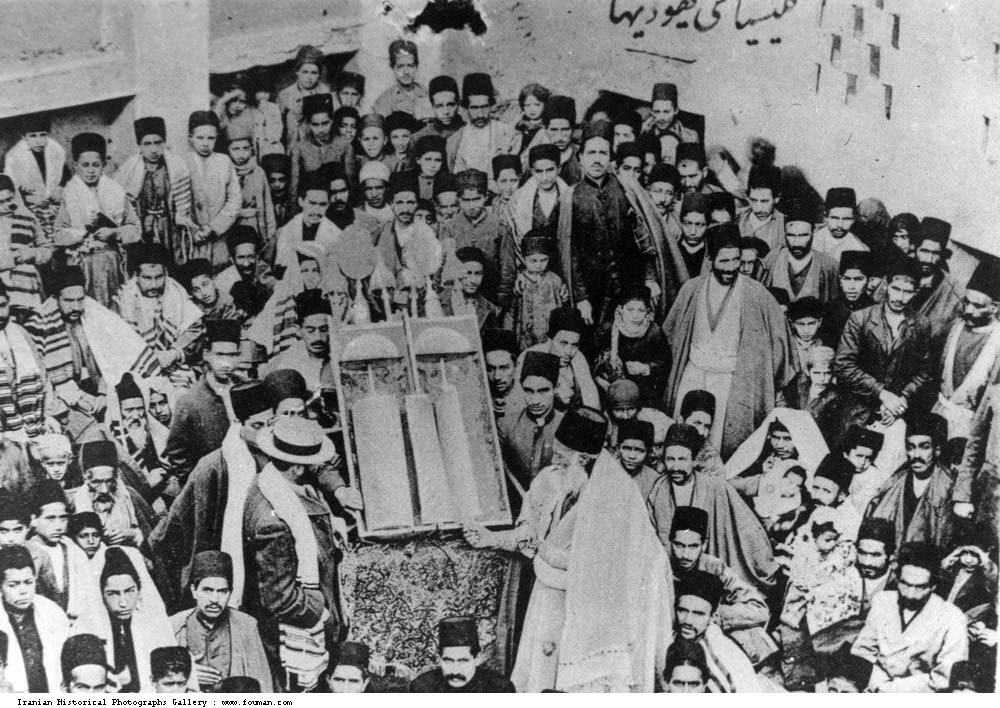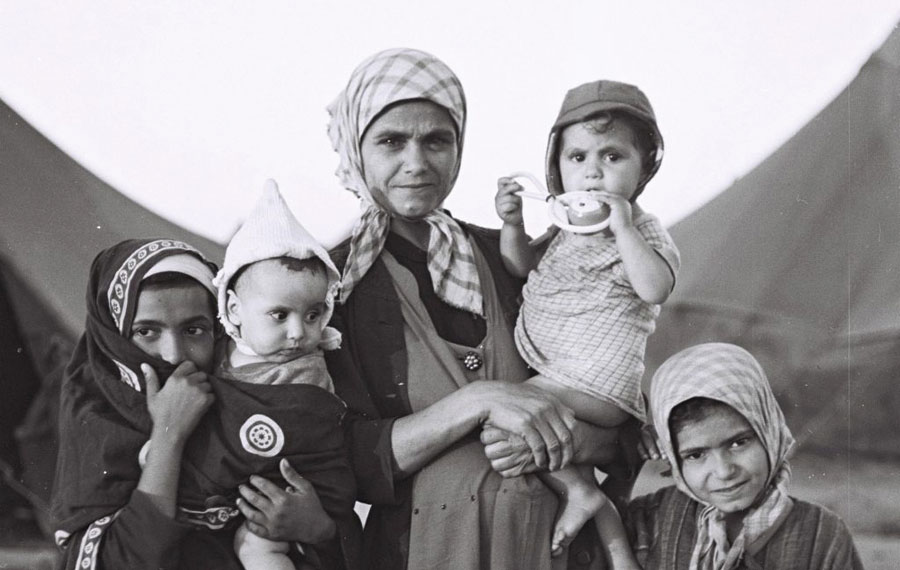 The Jews of Tehran, Iran circa early 20th century.
The Jews of Tehran, Iran circa early 20th century. The recent discussion about “Jews of Color,” who fit this identity and whose numbers relative to the total Jewish population are significant, has once again exposed a blind spot in American Jewry.
The Jews of the Middle East and North Africa, otherwise known as Mizrahi Jews, are far too frequently erased from the general debate over identity in the American Jewish community, which has recently largely been painted as binary, comprising only “white” Ashkenazi Jews and Black Jews.
The debate is significant because while there appears to be a significant disagreement over the numbers of each community, Mizrahi Jews appear to be rarely counted. Perhaps it is because the debate is largely connected to the wider American debate about identity, privilege and racism, but surely those involved in this debate, usually the elites in the media, academia and the Jewish organizational world, should not be easily forgiven for the erasure of this historic Jewish community.
Possibly, ignoring Mizrahi Jews allows some to understand the Jewish world in a conceptually neat but facile manner.
Ignoring Mizrahi Jews allows some to understand the Jewish world in a conceptually neat but facile manner.
Not including Mizrahi Jews allows for discussions of Israel, occupation and oppression in simplistic terms, allowing for the imposition of clearly defined roles in the Israel-Palestinian debate.
Including Mizrahi Jews in global Jewish discussions is sometimes an uncomfortable reflection of the need for a binary approach to Israel in its relationship with the Arab world. A wider and historic understanding of Mizrahi Jewry will turn terms like conquest, occupation, oppression and even apartheid on their head. These terms are very visceral memories of cultures, languages and lands erased in the 7th century by Arab conquest and subsequent colonialism and occupation.
The worldview of Mizrahi Jews has been shaped by this historic experience, much like the European experience has shaped much of Ashkenazi Jewry. They recognize and worry about a refusal to see the Jewish people’s rights in the region as equal and legitimate, and see in this frequently violent rejectionism echoes of their community’s experience under the legally oppressive dhimmi status.

Their experience reminds them that this conflict is about more than land and borders, that it is a conflict that will only end with a victor and a loser. It will not end by negotiated settlement. The millennia of collective familiarity with this colonialist ideology and narrative screams to them that only the strong survive in this region, and that for peace and reconciliation to arrive the Palestinians will have to accept that their war against Jewish sovereignty has failed and been defeated, as they eventually accepted their defeats in Spain and other parts of Europe where Muslim conquest and expansion came to a halt. Like the British in Asia and the French in Africa, Muslim conquest, occupation and colonialism has its boundaries, and Israel must repel this expansionism.
This will only happen if, as a people, we start recognizing that Zionism is a victorious national liberation movement, that turns on its head our collective subjugated experience in the region over the last 1,300 years.
Current debates on identity in the United States are strongly connected to the notion of privilege, which is understandably based on history, imperialism, conquest and oppression. Mizrahi Jews, because of their wider regional and historic experience, see an Arab Muslim privilege, in part at least the same way a person of color might see a white person in the United States.
This is what possibly shapes the fact that on the Israel-Palestinian conflict, Mizrahi Jews remain on average more hawkish than their Ashkenazi counterparts. Arab culture, language and mentality is more familiar to them because it was forced on their ancestors for the past 1,300 years.

However, the culture, language and tradition of Mizrahi Jews is sadly less familiar to their European Jewish counterparts, especially, it seems, in the United States.
It is rare that conferences on global Jewish issues, or discussions of Israel-Diaspora relations, include these voices, and when they do it is certainly not to anything like an extent reflecting their relative strength in the community.
In fact, there are even hints of racism when Jewish figures in the United States argue that they do not see or recognize what Israel is or has become. Frequently, their conception of Israel is through a Westernized prism that erases the Mizrahi Jews, and not recognizing those Jews of Middle Eastern or North African background, with their different features, mannerisms, history and traditions, reflects racism.
They want to see Israel as a European invention and extension, that it is a privileged nation in a sea of local and indigenous people.
They want to see Israel as a European invention and extension, that it is a privileged nation in a sea of local and indigenous people. The presence of a majoritarian Mizrahi culture disturbs these American Jews, who like to self-define as “progressive” and “liberal,” and their privilege. Their talk of distancing themselves from Israel, a democratic nation, over its policy decisions is a disturbing phenomenon, because what they really mean is that when they look in the mirror they do not see Israeli Jewry and their capacity and agency to decide on what path is best for them.
Perhaps these personalities should understand what it means to be a Mizrahi Jew, in Israel and in the United States. How does their experience, history and culture reflect on their Weltanschauung?
Unfortunately, we see debates, conferences and commentators ultimately use their own narrow prisms of understanding, reflective of the debate that they seek. Including Mizrahi Jews disrupts this, even if would be morally as well as intellectually more honest.
This blind spot must be ended once and for all—racism within the Jewish world towards any person or community should not be tolerated. The erasure of a whole part of our people is unforgivable on moral grounds, but on a practical level, like the debate about statistics on “Jews of Color,” it does not make for an honest and realistic debate within our people about our current and future challenges.
Nave Dromi is an Israeli commentator and director of the Middle East Forum’s Israel Office.























 More news and opinions than at a Shabbat dinner, right in your inbox.
More news and opinions than at a Shabbat dinner, right in your inbox.